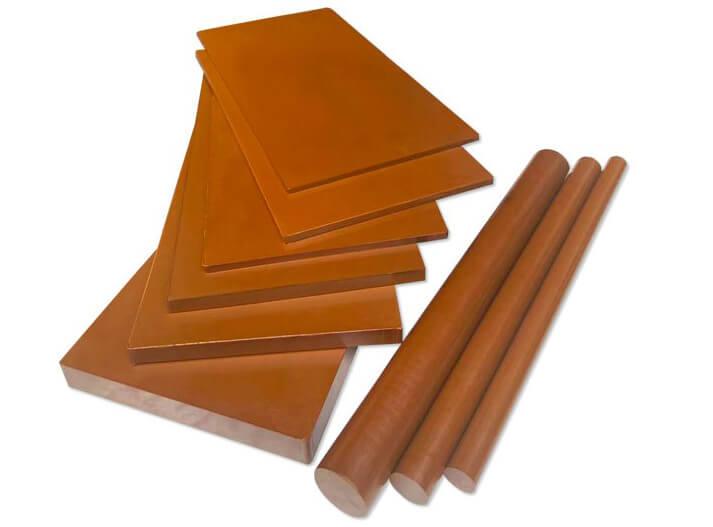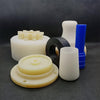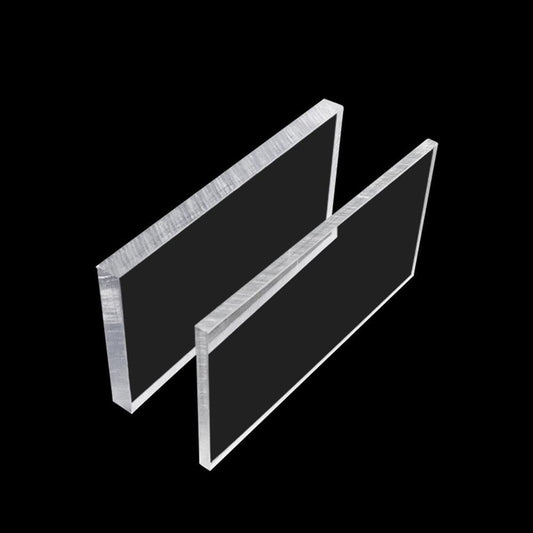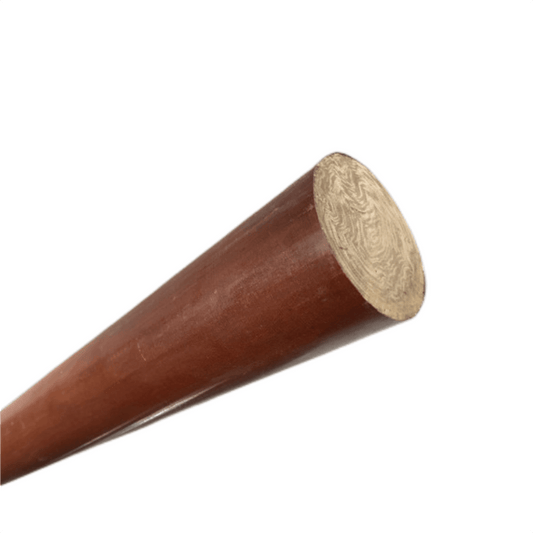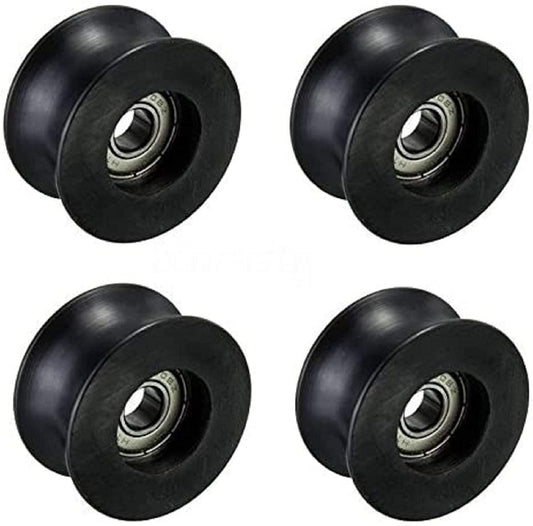If you are looking for a plastic material that can withstand high temperatures, harsh chemicals, and mechanical stress, you may want to consider PI (Polyimide) plastic material. PI (Polyimide) is a polymer containing imide groups, belonging to a class of high-performance plastics. It has excellent heat resistance, chemical resistance, mechanical properties and electrical properties, making it suitable for various demanding engineering applications. In this article, we will introduce the main types and characteristics of PI (Polyimide) plastic material, the common processing methods, and the wide application fields. We will also recommend a professional PI (Polyimide) customization service provider that can help you with your specific needs.

The main types and characteristics of PI (Polyimide) plastic material
According to the different main chain structure and cross-linking mode, PI (Polyimide) plastic material can be divided into two major categories: thermoplastic and thermosetting, as well as three major categories: aromatic, semi-aromatic and aliphatic. Each type has its own advantages and disadvantages and application scope.
Thermoplastic PI (Polyimide) is a linear polymer that can be melted and reshaped by heating. It has good processability, flexibility and toughness, but lower heat resistance and mechanical strength than thermosetting PI (Polyimide).
Thermosetting PI (Polyimide) is a cross-linked polymer that cannot be melted or reshaped by heating. It has high heat resistance, mechanical strength and dimensional stability, but poor processability and brittleness.
Thermosetting PI (Polyimide) is a cross-linked polymer that cannot be melted or reshaped by heating. It has high heat resistance, mechanical strength and dimensional stability, but poor processability and brittleness.
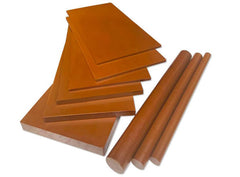
Aromatic PI (Polyimide) is derived from an aromatic dianhydride and diamine. It has the highest heat resistance, mechanical strength and chemical resistance among all types of PI (Polyimide), but also the highest cost and the lowest solubility.
Semi-aromatic PI (Polyimide) is derived from either an aromatic dianhydride or diamine and an aliphatic counterpart. It has moderate heat resistance, mechanical strength and chemical resistance, as well as better flexibility and solubility than aromatic PI (Polyimide).
Aliphatic PI (Polyimide) is derived from an aliphatic dianhydride and diamine. It has the lowest heat resistance, mechanical strength and chemical resistance among all types of PI (Polyimide), but also the lowest cost and the highest solubility.
The common processing methods of PI (Polyimide) plastic material
PI (Polyimide) plastic material can be processed into different forms of products by different methods, such as injection molding, extrusion, compression molding, transfer molding, laminating molding, coating, casting, etc. Each method has its own characteristics and precautions.
Injection molding is a process of injecting molten thermoplastic PI (Polyimide) into a mold cavity under high pressure and cooling it to form a solid product. It is suitable for producing complex shapes and large quantities of products with high precision and low cost.
Extrusion is a process of forcing thermoplastic PI (Polyimide) through a die with a specific cross-section under high temperature and pressure to form a continuous product. It is suitable for producing products with simple shapes and uniform cross-sections, such as rods, tubes, films, etc.
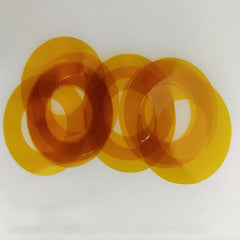
PI (Polyimide) plastic material has a wide range of application fields due to its unique physical and chemical properties. It is widely used in aerospace, electronics and electrical, automotive, medical, energy and other fields. Here are some examples of its specific applications and roles in each field.
In aerospace, PI (Polyimide) is used for making high temperature resistant components, such as engine parts, heat shields, insulation materials, etc. It can also be used for making lightweight and strong composites, such as carbon fiber reinforced PI (Polyimide), which can reduce the weight and fuel consumption of aircrafts.
In electronics and electrical, PI (Polyimide) is used for making flexible printed circuit boards (FPCBs), which can bend and fold without breaking. It can also be used for making thin film transistors (TFTs), which are the key components of flat panel displays, such as liquid crystal displays (LCDs) and organic light emitting diodes (OLEDs).
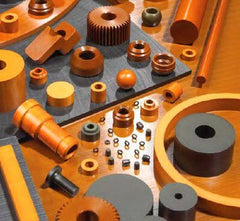
In automotive, PI (Polyimide) is used for making high performance parts, such as brake pads, clutch plates, piston rings, etc. It can also be used for making sensors, actuators, connectors, etc., which can withstand high temperature and vibration.
In medical, PI (Polyimide) is used for making biocompatible devices, such as implants, catheters, stents, etc. It can also be used for making drug delivery systems, such as microcapsules, nanofibers, etc., which can release drugs in a controlled manner.
In energy, PI (Polyimide) is used for making high temperature fuel cells, which can convert chemical energy into electrical energy. It can also be used for making solar cells, which can convert solar energy into electrical energy.
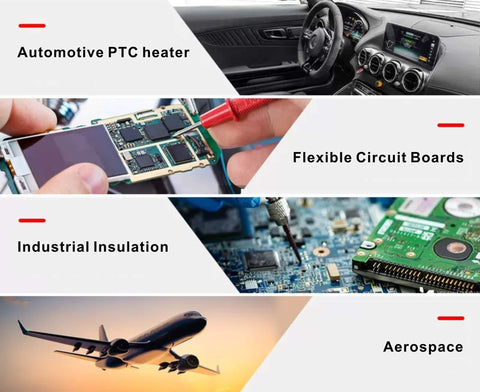
PI (Polyimide) plastic material is a high-performance engineering plastic with outstanding properties, such as heat resistance, chemical resistance, mechanical properties and electrical properties. It can be processed by various methods and applied in various fields. It is a versatile and valuable material for many industries and applications.
If you are looking for a professional PI (Polyimide) customization service provider, we recommend you to visit www.beeplastic.com website. They offer high-quality PI (Polyimide) products with various shapes, sizes and specifications. They can also help you with design, development and testing of your PI (Polyimide) products. They have rich experience and expertise in PI (Polyimide) processing and application. They can provide you with the best solutions and services for your PI (Polyimide) needs.
To learn more about their PI (Polyimide) products and services, please visit their website or contact them by email. They will be happy to answer your questions and provide you with a free quote.

